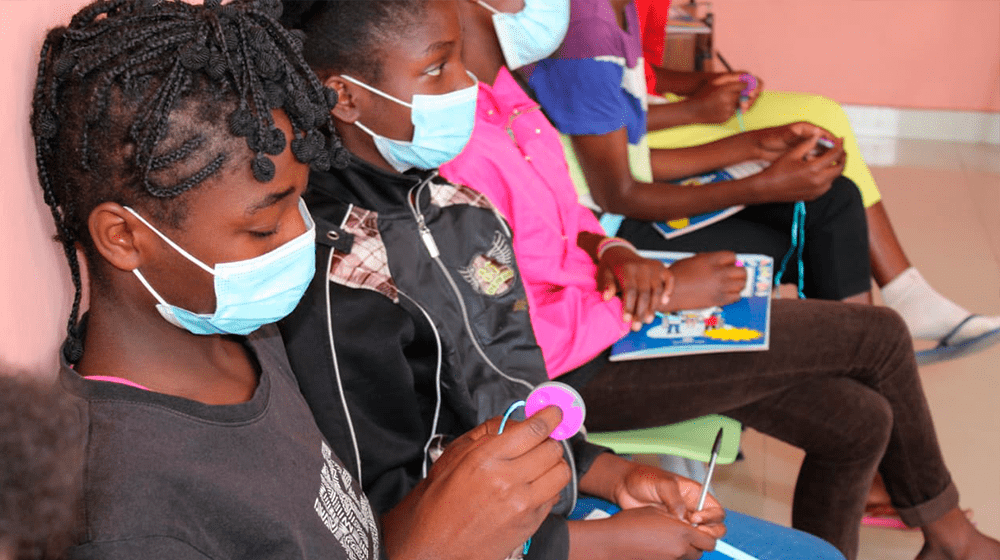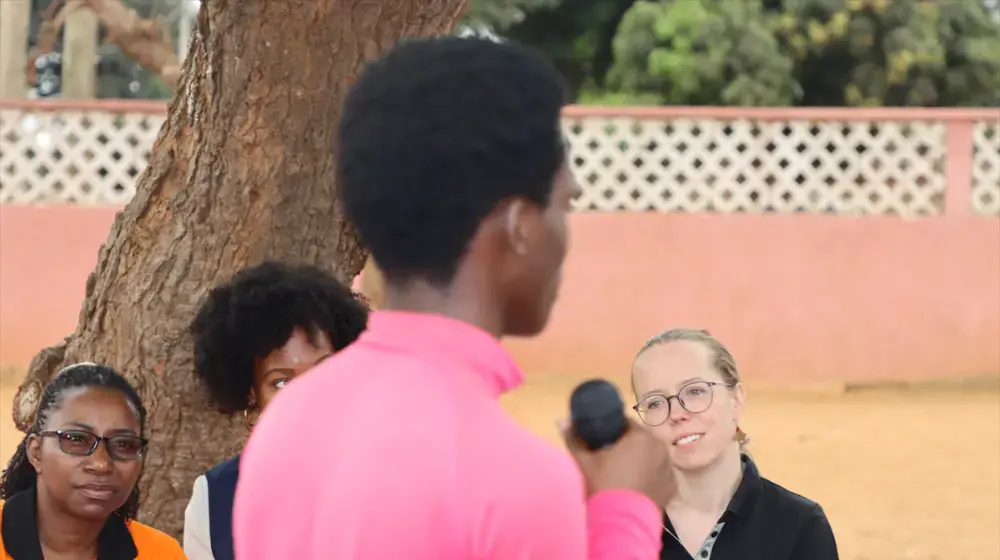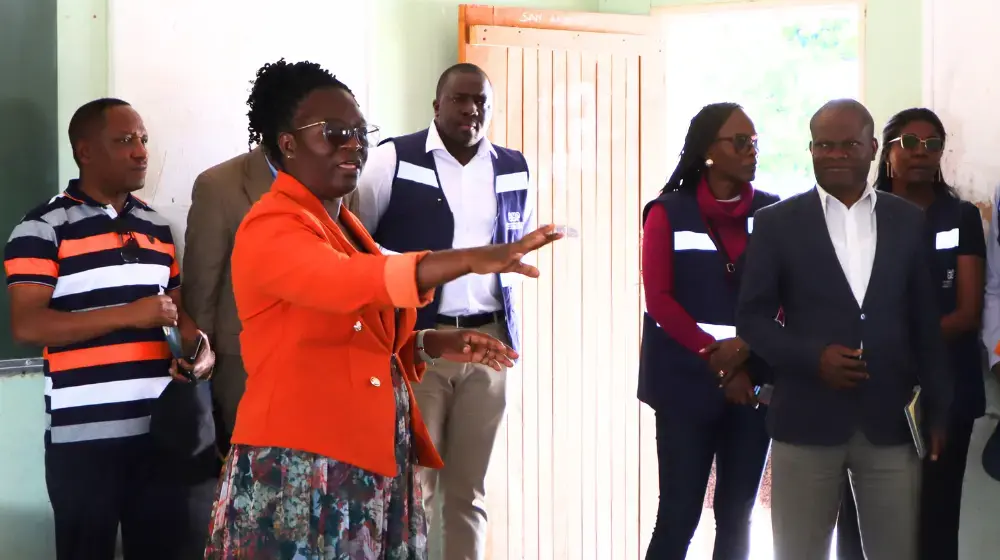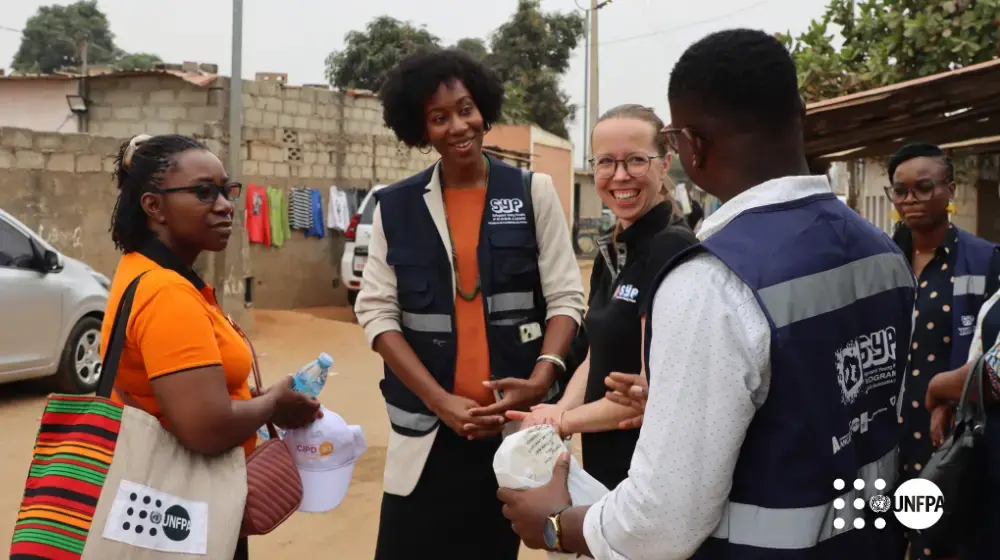Trainers from four provinces received virtual training in Menstrual Health Management
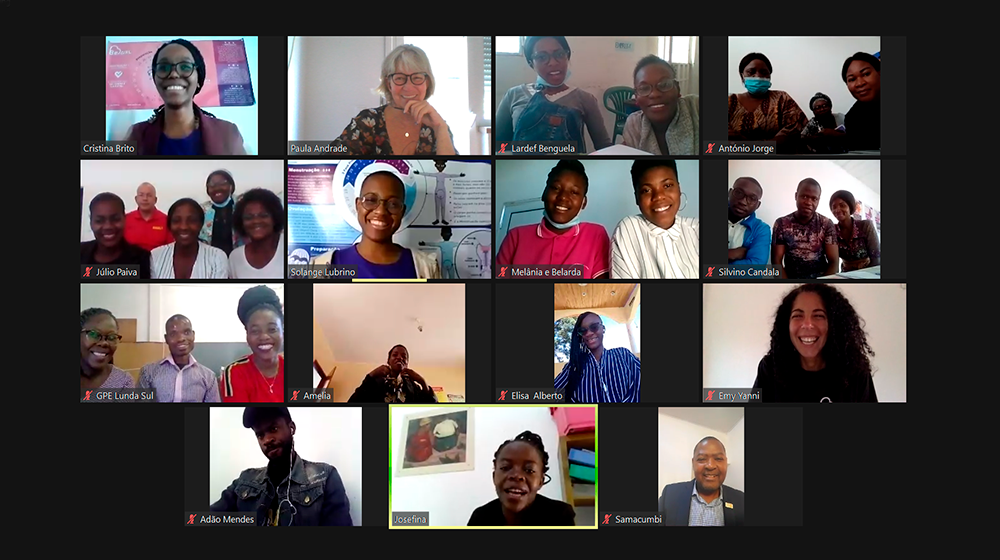
UNFPA and the Be Girl association trained from July 5-9, 2021, 27 members from government institutions and civil society in Menstrual Health Management. This event was the second training of its kind and now focused on trainers from the provinces of Benguela, Cuanza Sul, Lunda Sul and Moxico. Promoting gender equality and fighting stigma around menstruation are some of the objectives of this program.
It was not the first time that Silvino Elizabeth Candala heard about sexual and reproductive health. The young man from Lunda Sul states that “he had already dealt with these issues at JIRO (Youth, Informed, Responsible and Organized)”, but “I wanted to know more about how menstruation occurs”. The recent training of trainers in Menstrual, Sexual and Reproductive Health that UNFPA and the Be Girl association organized virtually was the opportunity I have been waiting.
What the 25-year-old learned in the forty hours of online training over five days changed his mind about the menstrual cycle. “I clung to the myths of my community, where they say, for example, that if a woman is in this state and cooks, a man cannot eat. I discovered that, after all, this is a lie!”, he recognizes.
The deconstruction of myths and taboos around menstruation was, precisely, one of the focal points of the action led by members of Be Girl Moçambique, to whom Silvino Candala is deeply grateful. “More than trainers, they were facilitators, showing us the best paths to follow”, he stresses. Sessions included other relevant topics such as body literacy, puberty and reproductive health, menstrual cycle, SmartCycle practice and care during menstruation.
The involvement of male adolescents and young people in the program is one of the goals that the institutions involved want to promote. Silvino Candala recognizes that this change of perspective is necessary and was one of the great revelations of the training. “I learned that this subject is not only of interest to women but to all of us. With the knowledge acquired, I will be able to speak more effectively when we go out into the field to inform the communities”, recognizes the trainer, who makes “a very positive assessment of the sessions”.
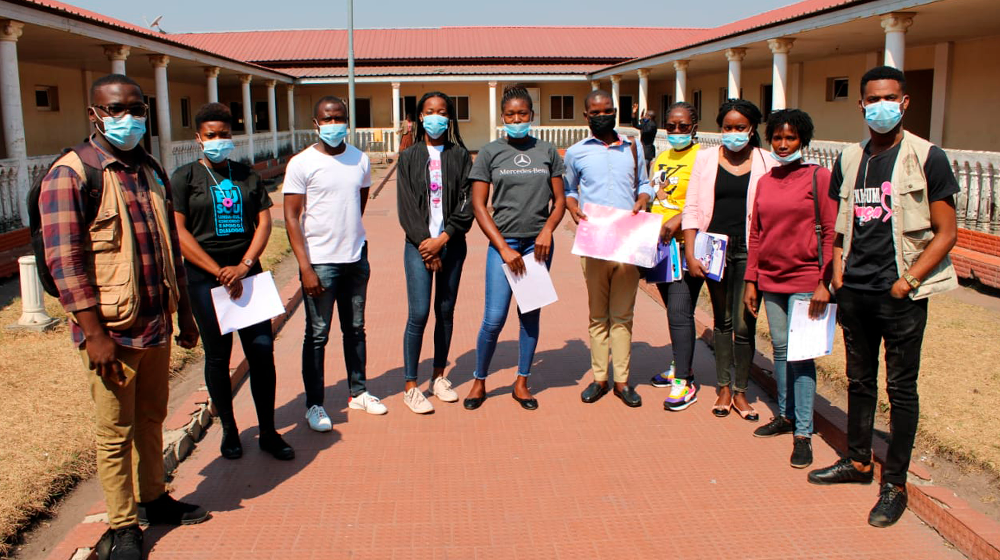
As part of the training, participants also put into practice the knowledge gained with 60 girls and boys from the focus provinces. In Benguela, Cuanza Sul, Lunda Sul and Moxico, where almost 25% of the Angolan population is concentrated, the vulnerability of young adolescents and women are accentuated. Especially in the eastern provinces, the lack of basic infrastructure, drinking water, energy and serious shortages in the education and health sectors affect the daily lives of millions of people.
This was the second virtual training for trainers under the Menstrual Health Management initiative in Angola, initiated in 2020 by UNFPA Angola in partnership with Begirl Inc and its ministerial and civil society institutional partners (Ministry of Education, Ministry of Youth, JIRO, Ministry of Social Action, Family and Women Promotion, Mwana Pwo, CAJ, ANASO, ANGOBEFA, REDE WOMEN and AfriYAN). The aim is to reach 2000 girls and 2000 boys between the ages of 12 and 16 with information on Menstrual, Sexual and Reproductive Health through educational workshops in which trainers like Silvino Candala will play a leading role.
In addition to this action, and within the scope of a partnership with the Ministry of Transport, on the 9th of July, UNFPA also developed a workshop on menstrual health in Cabinda for 25 girls and 13 boys. In the session, participants received smart cycles that allow managing menstrual cycles. The girls also received menstruation panties with a shelf life of two years.
For Olga Lourenço, activist and workshop facilitator, it was a new experience, “because we usually take care to know the location of the activity, to have time to create a connection with the target group, but in this case, everything was quick with short notice, it did not give us room to prepare. We had to stay calm and focus on what we do best, at first it was difficult to get the girls to interact, they were shy, suspicious, not relaxed which was understandable as we took them from a known point and transported them by bus to another point away from their homes. It took a while for the group to feel comfortable."
The main goal of this set of actions on several fronts is to empower girls to manage their menstruation with confidence and dignity, contributing to the realization of a fundamental human right, the promotion of gender equality and combating the surrounding social and cultural barriers and stigmas of menstruation.

